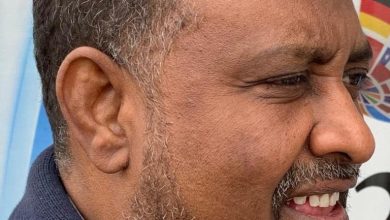Opinion
Blindness in the Snare of “Who Lit the War?”

Ahmed Kamal Al-Din
A Few Concepts
Have you ever heard of Gavrilo Princip? Most people in the world today likely haven’t, and those who once did probably forgot. He remains just a footnote in the yellowing pages of history books. Yet, he was the one who fired the first shot in World War I (1914–1918). Gavrilo Princip, then a student, set the first piece of the dynamo in motion for that war by assassinating Archduke Franz Ferdinand, the heir apparent to the Austro-Hungarian throne, and his wife, Sophie, Duchess of Hohenberg, on June 28, 1914. In other words, as many historians suggest, Gavrilo was the one who “lit the fuse” for World War I.
In Sudan, despite the clarity of recent events, it’s apparent that the Rapid Support Forces (formerly, before their dissolution) were mobilizing from the peripheries toward the center and to Merowe in the north before April 15, 2023. Moreover, they began detaining retired personnel from the regular armed forces as early as April 13, as evidenced by documented videos showing these forces interrogating detainees in custody, allegedly to demonstrate their good treatment. Despite all this, the question, “Who lit the war?” is a diversionary, irrelevant question that lacks any meaningful importance.
War—used here as a metaphor—carries such painful, lethal, bloody, and disgraceful implications that any rational person would be preoccupied with its devastating consequences rather than the technicalities of its beginnings, or even its causes. Yet, some exploit this “diversion” of thought and “distraction” from the massacres that shed the blood of unarmed civilians across Sudan. They use it to suppress outrage against the blatant and egregious oppression in attacking citizens in their homes, plundering their property, and violating their lives and dignity in broad daylight.
This is “war” only metaphorically because its heinous nature transcends the term “war” as defined by international law (Bellum), in terms of the justifications for its initiation and the conditions for its conduct, which must remain outside the realm of criminality. What we are witnessing in Sudan is more than 90% classified as war crimes, not acts of war in which armed soldiers fight their armed counterparts. It is a criminal insurrection targeting non-military objectives—unarmed civilians who are innocent even of mere political affiliation, let alone armed combat. These militia forces have deliberately and willfully chosen such targets, documenting their atrocities with pictures and videos as a perverse source of pride and evidence of their egregious acts.
They did this while killing, dragging, and mutilating the body of the martyr Khamis Abakar, the governor of West Darfur in El Geneina. They did it in the capital’s triad, in the heart of Gezira, the east, and the south, with premeditated intent, deliberate legal culpability, and a clear forethought of malice. And after all this, they still have the audacity to call out, as if in a trance, “Who lit the war?”—lost in their own delusion!



